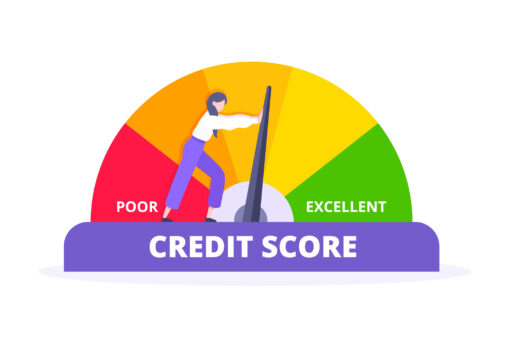
People who are currently drowning in debt may find that declaring bankruptcy is a very helpful financial planning tool. Bankruptcy gives you the financial breathing room you need by enabling you to get rid of (Chapter 7) or restructure (Chapter 13) your debts. A bankruptcy proceeding will, unfortunately, lower your credit score. The good news is that within four to five years after filing for bankruptcy, if you make an effort to adhere to best practices for managing your credit, you might have a credit score in the 700s. These recommendations will help you raise your credit score after bankruptcy.
Investigate your credit reports
You should check your credit reports a few months after filing for bankruptcy to be sure all of the debts have been erased. For instance, if you filed for Chapter 7 and had all of your credit card bills discharged, each of those creditors should have a zero balance or a closed account notice next to it. If you don’t, get in touch with the creditor and the credit reporting company right away to correct the reporting mistakes and give yourself a fresh start.
Immediately pay your bills
Since your payment history accounts for a sizable amount of your credit score, paying your bills on time and in full is a quick and easy approach to raise your score. Setting yourself up with monthly reminders or enrolling in autopay should help you stay on track.
Establish new credit
Even though you might be tempted to go to a cash-only budget after filing for bankruptcy, doing so will hurt your credit. You must open a new line of credit in order to start building your credit history with favorable information in order to start improving your credit score. Perhaps you might begin with a secured credit card (backed by a deposit with the creditor).
Keep your amount much below the credit limit when applying for a new credit card because not using all of the available credit can boost your credit score. Think about requesting an auto loan in a year or two. Although the interest rate on your initial loan will be high, if you can successfully make the monthly payments, it will raise your credit score and enable you to qualify for loans with lower interest rates in the future.
Save for emergencies
An unforeseen circumstance, such as a medical emergency or a protracted time of unemployment, often forces people to take on too much debt, depleting their funds and forcing them to file for bankruptcy. Try to start saving for emergencies once more to break the cycle of debt. Make a savings-based budget and stick to it.
Contact a qualified bankruptcy lawyer if you’d like additional information on how bankruptcy may impact your credit score and how to recover from one. You can reach The Law Offices of Paul Y. Lee at 951-755-1000.

